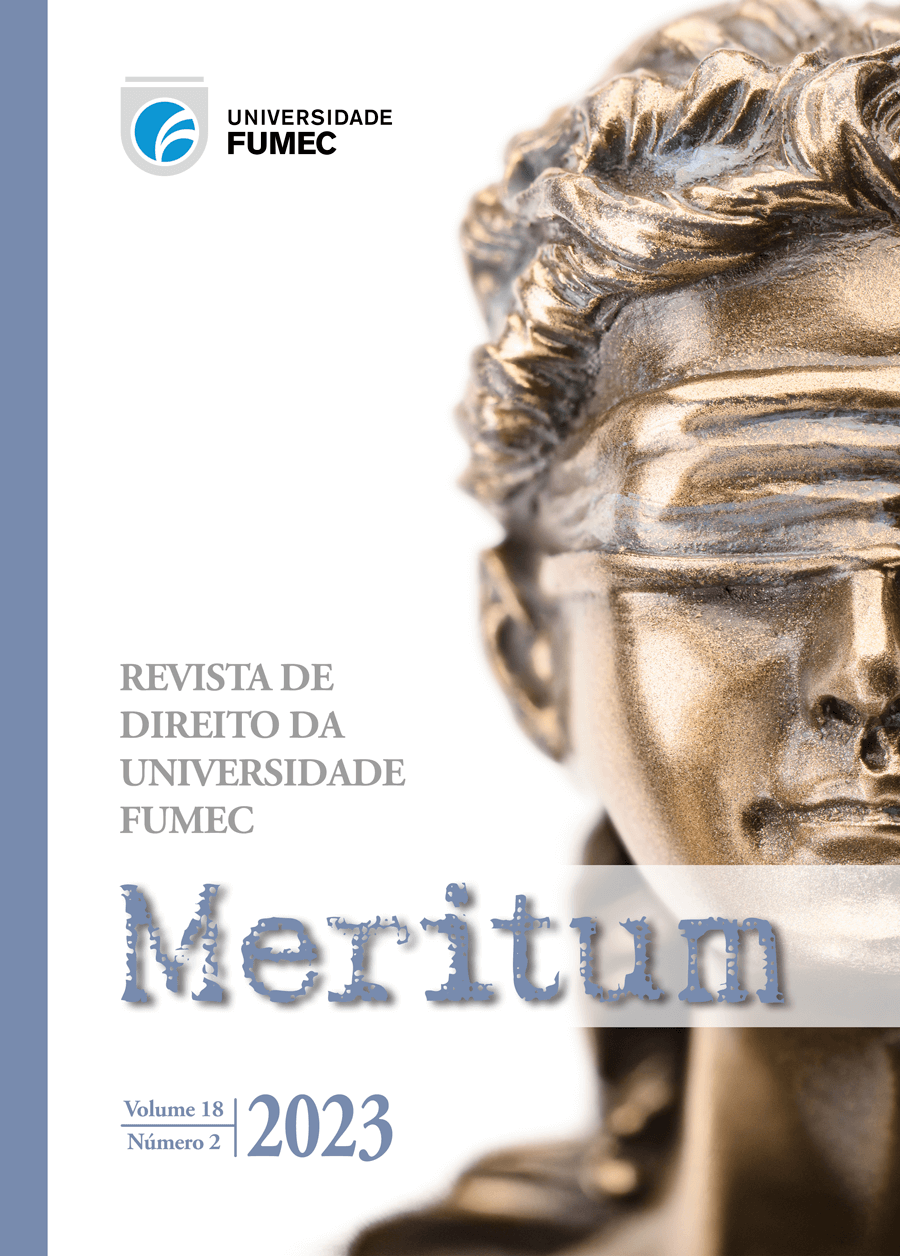DO PODER SOBERANO À BIOPOLÍTICA
AS FORMAS DE CONTROLE E DE RESISTÊNCIA NO AMBIENTE VIRTUAL
DOI:
https://doi.org/10.46560/meritum.v18i2.9273Abstract
This article aims to analyze the presence of control and resistance forms in the virtual environment throughout the lenses of Foucault lessons. The justification and the relevance of this research is intertwined with the fact that the virtual environment is nowadays inseparable from daily life. Foucault is innovative by detaching himself from the idea that power belongs to the State, group, or person, he understands it as a phenomenon that is not localized but that runs through bodies. He questions why people obey too much and seeks to analyze how the relations of power work in three moments throughout history: sovereign power, disciplinary power, and biopower. Based on this inference, it was developed with a bibliographic research, with the deductive approach method. Capitalism served as a terrain for the use of biopolitics, the model which is adopted in the Federal Constitution of 1988 legitimizes this power. All this innovation and technology employed can be a means of social inclusion, but there is also no denying the social benefits of this process in a capitalist system. In these terms, biopolitics and biopower are forms of social control and generators of social benefits. The virtual environment can be used for surveillance and control of individuals and the population, as a relationship of power and domination according to Foucault, as well as a form of resistance of bodies in a crowd according to Negri.
Downloads
Published
Issue
Section
License
Autores que publicam nesta revista concordam com os seguintes termos:
- Autores mantém os direitos autorais e concedem à revista o direito de primeira publicação, com o trabalho simultaneamente licenciado sob a Licença Creative Commons Attribution que permite o compartilhamento do trabalho com reconhecimento da autoria e publicação inicial nesta revista;
- Autores têm autorização para assumir contratos adicionais separadamente, para distribuição não-exclusiva da versão do trabalho publicada nesta revista (ex.: publicar em repositório institucional ou como capítulo de livro), com reconhecimento de autoria e publicação inicial nesta revista;
- Autores têm permissão e são estimulados a publicar e distribuir seu trabalho online (ex.: em repositórios institucionais ou na sua página pessoal) a qualquer ponto antes ou durante o processo editorial, já que isso pode gerar alterações produtivas, bem como aumentar o impacto e a citação do trabalho publicado (Veja O Efeito do Acesso Livre).






